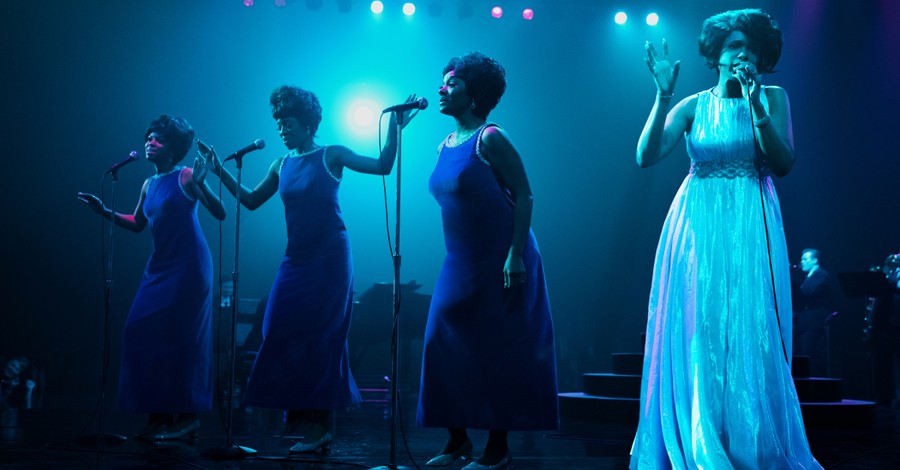
The new biopic movie Respect doesn't gloss over the many trials in Aretha Franklin's life but also doesn't hide the role her Christian faith played in her journey, director Liesl Tommy says.
Respect (PG-13), which releases in theaters this weekend, tells the whole story of Franklin's journey – from tragedy to triumph, Tommy says.
The film stars Jennifer Hudson (Dreamgirls) as Franklin and Forest Whitaker (The Last King of Scotland, Rogue One) as her father, C.L. Franklin. Both have won Oscars. The plot begins with Franklin's childhood – when she sang in her father's church – and ends with the recording of her first gospel album, Amazing Grace, in front of a live church audience in 1972.
"When I pitched the film to the studio, when I was still being interviewed, I just said very clearly that I thought the movie should begin in the church and end in the church because the church was so formative in terms of who she was as a person, her politics, but also her sound," Tommy told Christian Headlines. "... Amazing Grace is one of her most successful albums. And so it seemed to me that that was a really beautiful bookend to begin and end with gospel music."
In fact, Amazing Grace was Franklin's top-selling album of all time – although the studio, at first, didn't agree to the project.
Franklin, known as the "Queen of Soul," is a member of the Rock and Roll Hall of Fame and the Gospel Music Hall of Fame.
Franklin's life was one of triumph over tragedy, Tommy said. Franklin gave birth to children at the ages of 12 and 14. (The father was a school friend.) Her first husband was physically abusive. Additionally, her father tried to control her career.
It was important to balance the good and the bad of Franklin's life within the film, Tommy asserted.
"Sometimes, you can get too bogged down in the dark periods of a person's life. But she had so many triumphant moments," shared Tommy. "And I think really getting to know where she struggled, you could appreciate her triumphs even more. And so, for me, that's the balance. I also want people to be able to identify with her journey."
Tommy believes moviegoers will be inspired by Franklin's story.
"Everybody has struggles, everybody has baggage, everybody has crises of faith," he asserted. "Everybody has moments where they have to go inside of themselves and really ask themselves, who they are, and how they want to be in this life. And I think that if you don't show those moments, you shortchange the character."
Franklin's life, Tommy added, is a "beautiful example of how you can overcome so much difficulty and still have a bright outlook."
Related:
4 Things to Know about Respect, the Gospel-Centric Movie about Aretha Franklin
Photo courtesy: ©Quantrell D. Colbert/Metro-Goldwyn-Mayer
Michael Foust has covered the intersection of faith and news for 20 years. His stories have appeared in Baptist Press, Christianity Today, The Christian Post, the Leaf-Chronicle, the Toronto Star and the Knoxville News-Sentinel.










